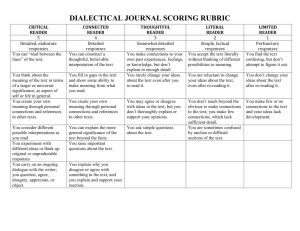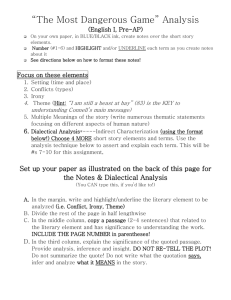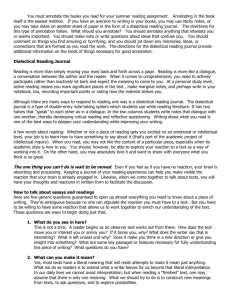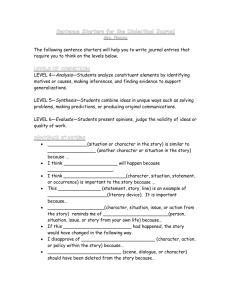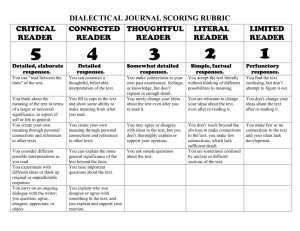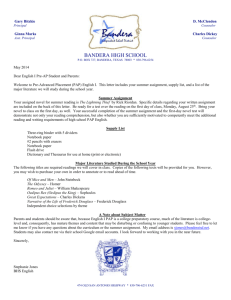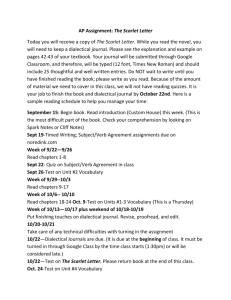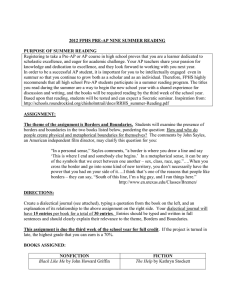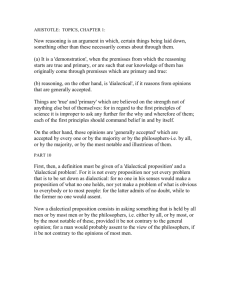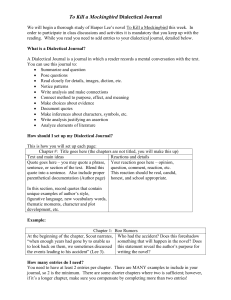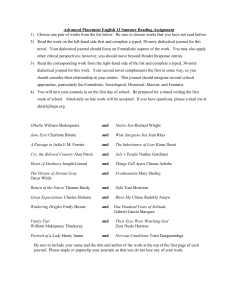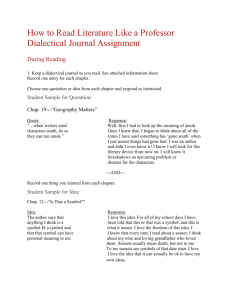Annotation and Dialectical Journal Instructions
advertisement
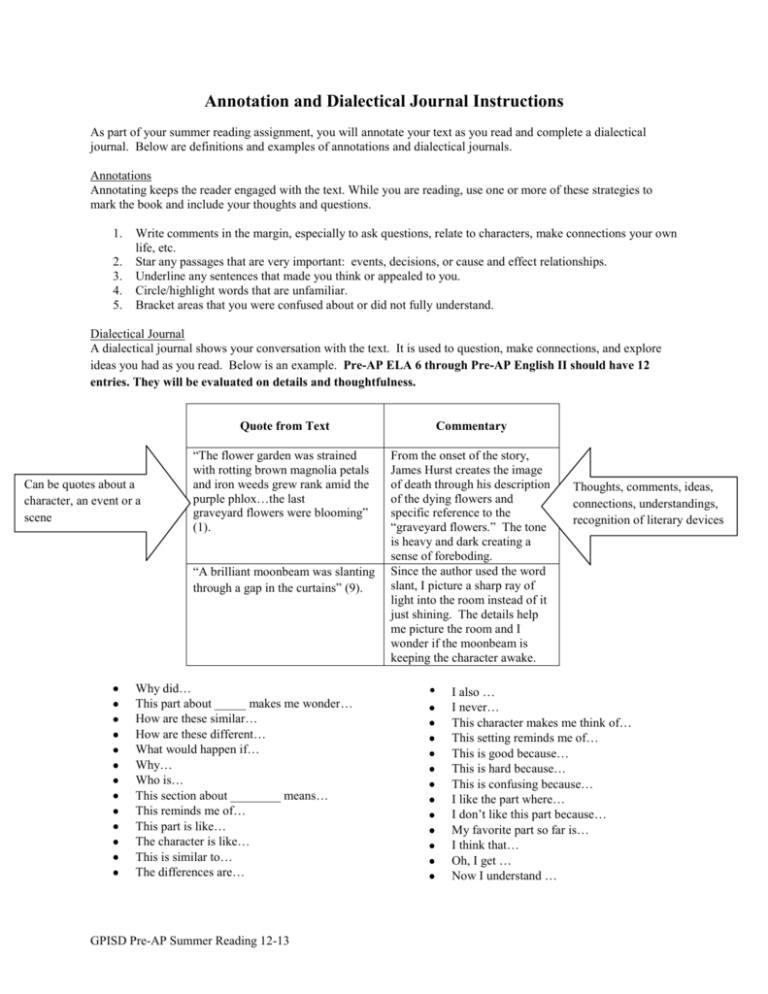
Annotation and Dialectical Journal Instructions As part of your summer reading assignment, you will annotate your text as you read and complete a dialectical journal. Below are definitions and examples of annotations and dialectical journals. Annotations Annotating keeps the reader engaged with the text. While you are reading, use one or more of these strategies to mark the book and include your thoughts and questions. 1. 2. 3. 4. 5. Write comments in the margin, especially to ask questions, relate to characters, make connections your own life, etc. Star any passages that are very important: events, decisions, or cause and effect relationships. Underline any sentences that made you think or appealed to you. Circle/highlight words that are unfamiliar. Bracket areas that you were confused about or did not fully understand. Dialectical Journal A dialectical journal shows your conversation with the text. It is used to question, make connections, and explore ideas you had as you read. Below is an example. Pre-AP ELA 6 through Pre-AP English II should have 12 entries. They will be evaluated on details and thoughtfulness. Can be quotes about a character, an event or a scene Quote from Text Commentary “The flower garden was strained with rotting brown magnolia petals and iron weeds grew rank amid the purple phlox…the last graveyard flowers were blooming” (1). From the onset of the story, James Hurst creates the image of death through his description of the dying flowers and specific reference to the “graveyard flowers.” The tone is heavy and dark creating a sense of foreboding. Since the author used the word slant, I picture a sharp ray of light into the room instead of it just shining. The details help me picture the room and I wonder if the moonbeam is keeping the character awake. “A brilliant moonbeam was slanting through a gap in the curtains” (9). Why did… This part about _____ makes me wonder… How are these similar… How are these different… What would happen if… Why… Who is… This section about ________ means… This reminds me of… This part is like… The character is like… This is similar to… The differences are… GPISD Pre-AP Summer Reading 12-13 • Thoughts, comments, ideas, connections, understandings, recognition of literary devices I also … I never… This character makes me think of… This setting reminds me of… This is good because… This is hard because… This is confusing because… I like the part where… I don’t like this part because… My favorite part so far is… I think that… Oh, I get … Now I understand … DIALECTICAL JOURNAL SCORING RUBRIC LIMITED READER: perfunctory responses LITERAL READER: simple, factual responses THOUGHTFUL READER: somewhat detailed responses CRITICAL READER: detailed, elaborate responses 1 2 3 4 You find the text confusing, but don’t attempt to figure it out. You accept the text literally without thinking of different possibilities in meaning. You make connections to your own past experiences, feelings, or knowledge, but don’t explain in enough detail. You can “read between the lines” of the text. You don’t change your ideas about the text after re-reading it. You are reluctant to change your ideas about the text, even after re-reading it. You rarely change your ideas about the text even after you re-read it. You think about the meaning of the text in terms of a larger or universal significance, as aspect of self or life in general. You make few or no connections to the text and your ideas lack development. You don’t reach beyond the obvious to make connections to the text; you make few connections, which lack sufficient detail. You may agree or disagree with ideas in the text, but you don’t thoroughly explain or support your opinions. You create your own meaning through personal connections and references to other texts. You are sometimes confused by unclear or difficult sections of the text. You ask simple questions about the text. You consider different interpretations as you read. You think of some unusual responses but stay mostly with more obvious meaning of the text. You experiment with different ideas or think of original or unpredictable responses. You carry on an ongoing dialogue with the writer; you question, agree, disagree, appreciate, or object. Rubric can be found at www.alvord.k12.ca.us/.../EEnglish2HDialecticalJournalScoringRubric.doc GPISD Pre-AP Summer Reading 12-13
